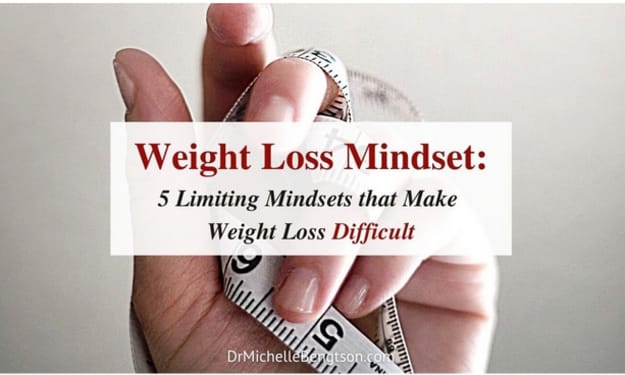Can light fasting really lead to longevity?
What are the benefits of light fasting?

Old Wang found that his wife has recently become very strange, she usually very heavy appetite, three meals a day without fail, but also some of their favorite food, if one day eats less, the mood will become very bad. As a result, this time she suddenly began to diet, either do not eat for more than ten hours or eat very little, even their favorite fried chicken, barbecue also do not touch.

Old Wang worried that this would be harmful to his wife's health, but his wife seriously told him, "This is what I learned from a nutritionist, he said this is called light fasting, if you can stick to it, you can live a long life!"
Old Wang thought it was absurd, not enough to eat, the body will certainly deteriorate, how can one also live a long life?
Now there is indeed the "light fasting" concept of health, so is it correct? How to achieve "light fasting"? Here's what you need to know.
Is it true that light fasting can lead to longevity?
In 1929, a four-year economic depression broke out in the United States, and many poor people did not even have enough food to eat. In this situation, Professor Jose Tapia, however, found that the life expectancy of people in that period increased by six years. This finding was written up as a paper in the August 2009 issue of the Proceedings of the National Academy of Sciences and has also caused more scholars to think about it. Light fasting, is it possible to live longer? [1].
Light fasting is not fasting but lowering the calorie intake. With the development of society, food is becoming more and more varied and rich in flavor, and people with poor self-control often overeat, which not only leads to obesity but also causes elevated blood lipids and blood sugar. Irrational eating habits may even induce cancer, which can have an impact on health and even life expectancy.
Scholars have also found that a restricted diet can help strengthen the immune system and reduce the chance of chronic inflammatory episodes. 【2]
Therefore, if you can restrict your calorie intake reasonably, you can indeed extend your life span to some extent.
How to light fasting?
The most common method of light fasting is "5+2", which means two non-consecutive days in a week of caloric restriction and five days of normal eating. It is important to note that a normal diet here is not a random diet, but a reasonable caloric intake calculated for individual exercise and weight.
Three meals on very low-calorie restriction days: a boiled egg for breakfast and a cup of black coffee, or skim milk if you are afraid of bitterness. If you are concerned about low blood sugar, you can also eat a slice of whole wheat bread. Lunch can eat oats, buckwheat, and other high-quality carbohydrates, such foods are low in calories, but also contains fiber, can promote gastrointestinal tract peristalsis, and help digestion and bowel movements. For dinner can eat a small number of sweet potatoes, you can also eat cucumbers, tomatoes, and other low-calorie fruits and vegetables.
If you feel very hungry between meals, you can also eat pears, prunes, and other fruits.
If the "5+2" light fasting method is not acceptable, you can also try the 16:8 intermittent diet, which means that the day's diet is concentrated in eight hours, and the remaining 16 hours can only consume some food without calories, such as plain water, zero sugar drinks, etc.
What are the benefits of light fasting?
1. Weight control
The human body needs a limited number of calories every day, the excess calories will be converted into fat accumulation in the body, so long-term will appear obese. After limiting calorie intake, the calorie consumption may be greater than the calorie intake, at this time the body will break down fat to provide energy, control weight, and weight loss effect.
2. Reduce the chance of cardiovascular morbidity
Long-term overeating and eating high-calorie food will cause blood lipids and blood pressure to rise, and in the long term, it will also easily cause problems such as hardening and narrowing of blood vessels, which will increase the chance of cardiovascular diseases such as coronary heart disease and cerebral infarction. If you can adhere to light fasting for a long time, it can help to control blood pressure and blood lipids within the ideal range, thus avoiding or delaying cardiovascular and cerebrovascular damage.
3. Control blood sugar level
A long-term uncontrolled diet will make the body less sensitive to insulin, unable to regulate blood sugar properly and induce diabetes. High blood sugar for a long time also increases the chance of malignant tumors, such as pancreatic cancer, prostate cancer, and colon cancer.
A diet high in sugar also has an impact on the endocrine system, which can increase androgen levels and oil secretion, causing acne, enlarged pores, and other skin problems. It also tends to cause menstrual disorders, polycystic ovaries, and other diseases.
4. Improve nerve function
Light fasting can promote the synthesis of BDNF, a substance known as a brain-derived neurotrophic factor, which is widely distributed in the central nervous system and plays an important role in the activation and development of neurons. Therefore, adhering to light fasting can help focus and improve memory, as well as reduce nerve damage and lower the chance of developing neurological diseases such as Parkinson's disease and Alzheimer's disease in the future.
What do I need to pay attention to in light fasting?
The first thing is to assess your physical condition. Not everyone can do light fasting. This method of regulating diet is suitable for non-pregnant, adult healthy people without serious underlying diseases; children and adolescents in the growth and development stage should not engage in light fasting, otherwise, it will easily lead to malnutrition and delayed growth and development, excessive thinning, and shortening.
Pregnant women also can not be light fasting, fetal development requires a lot of energy and nutrition, if light fasting during pregnancy, the fetus will be delayed, or lead to fetal malformation and death.
People with chronic digestive diseases are also not suitable for light fastings, such as gastric ulcers, duodenal ulcers, enteritis, and so on. People suffering from such diseases often also have malnutrition, anemia, and other conditions, and insisting on light fasting may further aggravate the condition.
Therefore, you need to go to the hospital to improve the relevant examination before the light fasting, to determine that there are no contraindications before you can start to control the diet.
The second is the need for professional guidance. Light fasting is not simply a restricted diet or diet but requires a professional nutritionist or physician to develop a reasonable program based on individual weight, exercise, physical fitness, and other practical factors. If you blindly control your diet on your own, it is easy to cause malnutrition, hypoglycemia, and other problems and may cause more serious digestive system diseases.

Professionals will specify the range of calorie intake required for the day according to the actual situation of the individual, and at the same time make a reasonable nutrition ratio, including protein, fat, carbohydrates, fiber, and other essential nutrients.
Light fasting also requires a gradual approach. Compared with a normal diet, light fasting is significantly lower in calories, which may be difficult for many people to accept at first, such as the inability to tolerate hunger, or even fatigue, dizziness, and other discomforts. So light fasting needs to adopt the principle of gradual progress, and gradually reduce the amount of food so that the body has a process of adaptation.
In addition, light fasting should also be combined with exercise. Proper aerobic exercise, including jogging, swimming, yoga, etc., can help speed up metabolism and improve blood circulation. Exercise and diet control in tandem will have a more desirable health effect than diet control alone.

People who exercise can increase the amount of food at their discretion to avoid overconsumption. You can also carry high-sugar foods such as chocolate and candy with you when exercising, and eat appropriately after symptoms of hypoglycemia such as dizziness, palpitations, and cold sweats to help relieve discomfort.
In the process of light fasting, if more serious discomfort occurs, such as hair loss, insomnia, emotional irritability, etc., it is recommended to discontinue in time to avoid continued deterioration of physical l condition.
Light fasting can only be used as a health and wellness method, with limited effect, and cannot be used as the main treatment, nor should we have high expectations. If you are suffering from some chronic disease, you should seek medical attention and receive standardized treatment.
The above is about "light fasting", thank you for reading, also welcome to leave valuable comments below the article, and everyone to exchange. You can also forward the article to your relatives or friends so that more people can understand light fasting.






Comments
There are no comments for this story
Be the first to respond and start the conversation.